The differences between crocodile and alligator go far beyond physical characteristics, as they are reptiles that belong to different families.
While crocodiles are family Crocodylidae, alligators are part of the family Alligatoridae. Both belong to the order crocodylia.
| Crocodile | Alligator | |
|---|---|---|
| Order | crocodylia | crocodylia |
| Family | Crocodylidae | Alligatoridae |
where are found |
Predominant in Africa, Central America, India, Southeast Asia and northern Australia. | They are common in the three Americas, but predominant in the south. They are also found in eastern China. |
| Size | It depends on the species, but varies from 2 to 7 meters in length. | It varies from 1.5 to 4.5 meters, depending on the species. |
| Weight | Different from one species to another, but in general the weight varies between 40 kilos and 1 ton. | It differs from one species to another, but in general they weigh between 35 and 230 kilos. |
| Main features | Crocodile hooves are extremely hard and tough. In addition, the bottom canine tooth is exposed outside the closed mouth, and the 80 teeth collaborate for one of the most powerful bites on Earth. | Heads short and wide, lower fourth tooth, on both sides of mouth, are collected for holes in the upper jaw. They have a swimming membrane between the toes of the hind legs. |
| Examples |
|
|
These animals are physically similar, but have differences that help in identification.
The alligator has a shorter and wider head than crocodiles, and is also distinguished by the lower fourth tooth on both sides, which in crocodiles are visible outside the mouth. In alligators, this tooth fits into a hole in the upper jaw.
Along with the birds, members of the order crocodylia are considered the closest relatives of dinosaurs. The first animals of the order appeared approximately 80 million years ago.
characteristics of the crocodile
Crocodiles belong to the family of Crocodylidae and are found on almost every continent. They are equipped by evolution with one of the most powerful jaws on Earth, containing 80 teeth and a force that can exceed 1 ton.
Still on dentition, one of the distinguishing features between crocodiles and alligators is that, in the former, the fourth canine tooth is exposed outside the mouth. While in the second, this tooth is collected into a hole at the top.
These reptiles can vary in size, measuring between 2 and 7 meters, depending on the species. The weight of a crocodile also differs in each species. Among all, they can weigh between 40 kilos and 1 ton.
Crocodiles are prevalent in Africa, Central America, India, Southeast Asia and northern Australia and are at the top of the food chain.
This means that they have no natural predators, humans being the main factor for the decrease in the number of specimens.
This is because they have been prized animals since antiquity. The skin was used for various purposes, as well as the meat and eggs, which were and still are used in cooking in some regions.
The term “crocodile” comes from the Greek words kroke It is drilos, which mean stone It is worm, respectively. The Greeks began to call these animals that way after observing them sunbathing immobile on sandbanks.
Examples of crocodiles
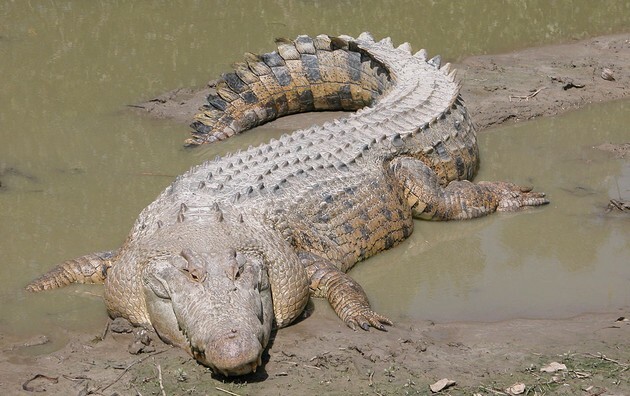
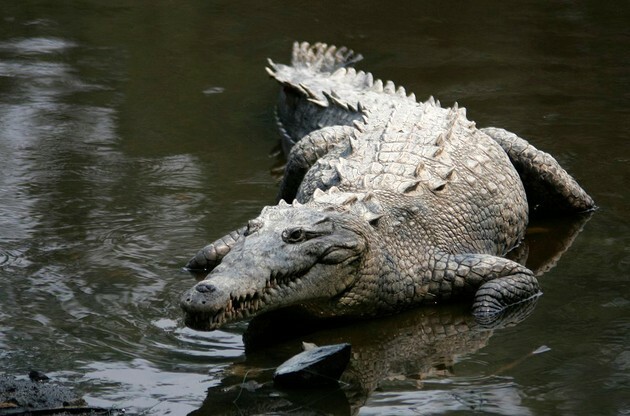
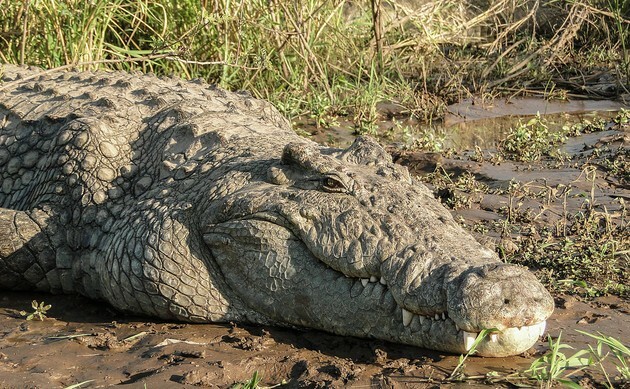
characteristics of the alligator
Alligators are part of the family Alligatoridae. They are similar to crocodiles, with the exception of the shorter and wider head, swimming membrane between the toes of the hind legs. And your fourth canine tooth from your lower jaw fits into a hole in your upper jaw.
However, alligators also feed on plants and fruits, in addition to meat and fish. This is another difference between these reptiles and crocodiles, which have an entirely carnivorous diet.
Depending on the alligator species, these reptiles can measure between 1.5 and 4.5 meters. However, it is worth mentioning that alligators have been found in Brazil that reached 5.5 meters in length.
Alligators also vary in weight depending on the species, ranging from 35 to 230 kilograms. However, specimens of black caiman weighing half a ton have already been found.
These animals are common in the Americas, predominantly in the south, where they got their name, which comes from the Tupi language. îakaré, which means "the one who looks from the side". However, they are also found in eastern China.
The alligator is also known as an alligator, a word derived from the English term alligator (which may have arisen from the Anglicanization of Spanish the lizard).
It is also called caiman, a term originating from the language of the Tainos, a pre-Columbian people who lived on several islands in the Caribbean.
Examples of alligators
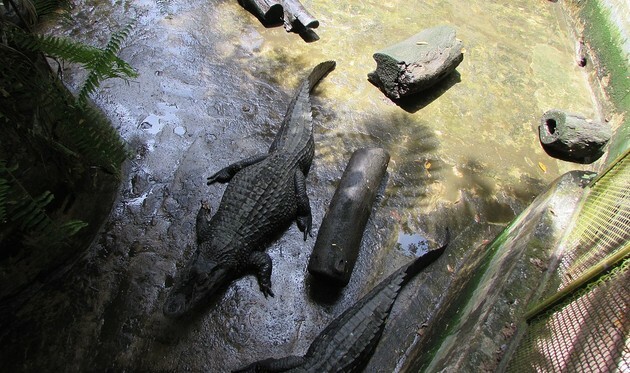
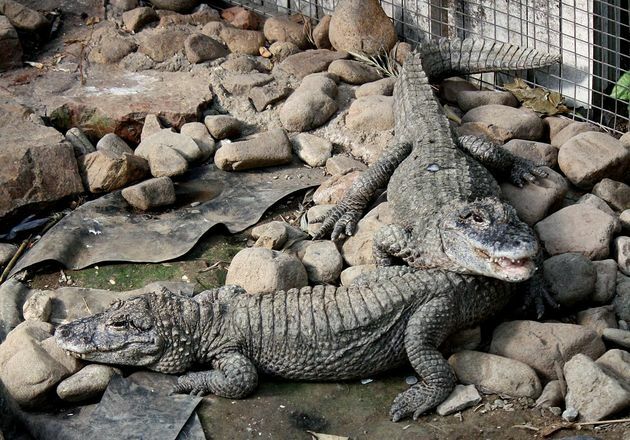

See also the difference between:
- Wild animals and domestic animals
- German and American Rottweiler
- Donkey, donkey, donkey, donkey, mule and bardoto
- Poisonous and venomous snakes
- Turtle, tortoise and tortoise



